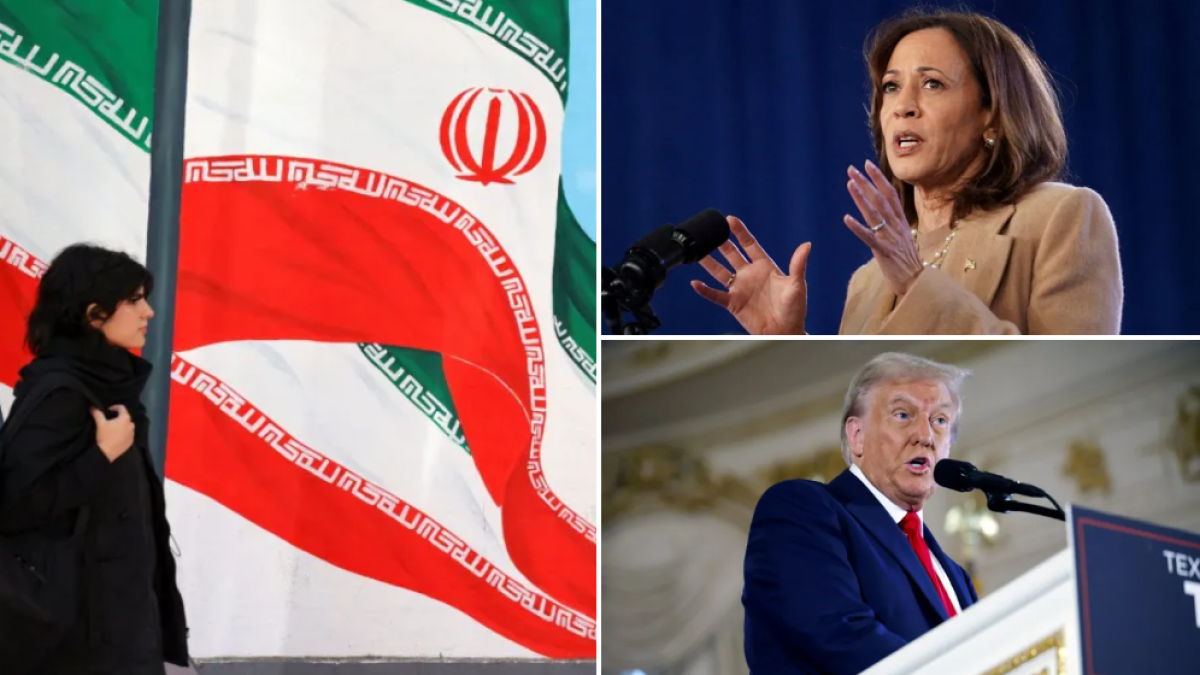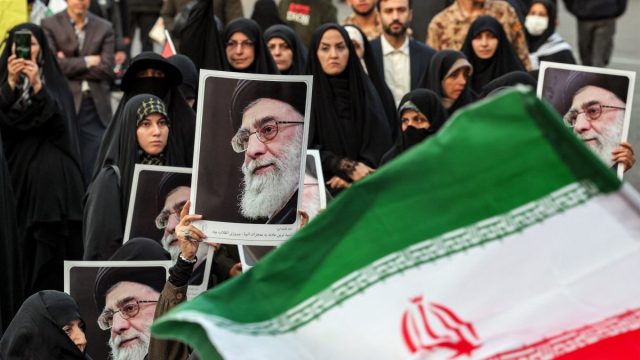TEHRAN – Iran is bracing for a possible Trump presidency under which the US could return to its hardline stance that slaps more sanctions on its oil, forces an unfavourable new nuclear deal and even grants permission for Israel to strike its nuclear facilities.
Some within the Iranian government are sceptical that either Kamala Harris, the Democratic candidate, or Donald Trump, for the Republicans, would spell good news for the Islamic Republic.
Trump declared in September that Iran should be blown “to smithereens” if it were found to be involved in the harming of a White House candidate or former president, after US intelligence warned of threats from Tehran against his life.
However, the other camp has demonstrated no particular love for Iran either. Harris named Iran the United States’s “greatest adversary” last month and said the country had American blood on its hands.
America’s continued push for further normalisation of ties between Israel and Middle Eastern states would also pose a significant challenge to Iran’s interests, building an alliance that could shift the balance of power in the region away from Tehran.
With the polls too close to call, Iran is analysing what a victory for both would mean – not only for the country but for its power across the Middle East, more than a year after the start of the war in Gaza. Since October 2023, Iran’s proxies including Hamas and Hezbollah in Lebanon have been degraded by Israel, and in recent months, Iran and Israel have targeted each other’s soil directly, with fears persisting of further escalation that could set the wider region aflame.
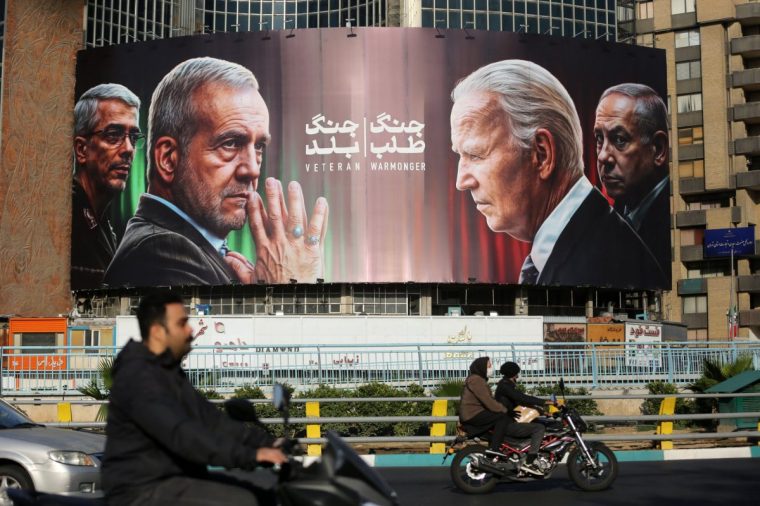 A billboard in Tehran shows Iran’s President, Masoud Pezeshkian, and his army chief face-off against US President Joe Biden and Israeli Prime Minister Benjamin Netanyahu following the Israeli missile attack on the capital (Photo: Fatemeh Bahrami/Anadolu via Getty Images)
A billboard in Tehran shows Iran’s President, Masoud Pezeshkian, and his army chief face-off against US President Joe Biden and Israeli Prime Minister Benjamin Netanyahu following the Israeli missile attack on the capital (Photo: Fatemeh Bahrami/Anadolu via Getty Images)
The US, as Israel’s most important ally, is unlikely to show much lenience when it comes to Iran, but there is division within the Iranian government over whether Iran has more to gain from Harris or Trump. While some say neither candidate would make a great difference, others believe that a Democrat victory might offer more room for negotiation than a Republican.
During his 2017-21 presidency, Trump exerted a “maximum pressure” campaign on Iran. In 2018 he unilaterally withdrew from the 2015 nuclear deal, known as the Joint Comprehensive Plan of Action (JCPOA), also signed by the UK, Russia, China, France and Germany, and imposed crippling sanctions that wreaked havoc on Iran’s economy: its gross official reserves fell from $122.5bn in 2018, to $12.4bn in 2019 and $4bn in 2020, according to the IMF. In 2020, he ordered the killing of general Qassem Soleimani, head of Iran’s Quds Force in its Islamic Revolutionary Guard Corps. There are fears that a Trump win would mean the return of such a strategy, or at least more reckless behaviour towards Iran.
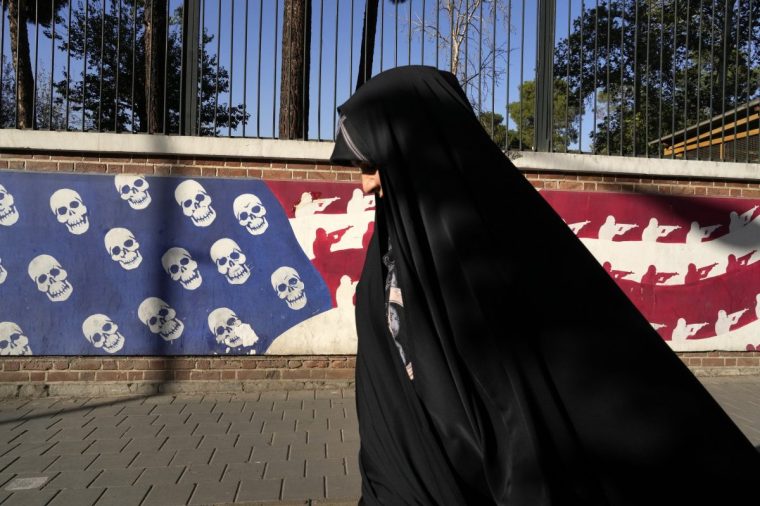 An Iranian woman walks past a satirised image of the American flag on the wall of the former US embassy in Tehran last month (Photo: Vahid Salemi/AP)
An Iranian woman walks past a satirised image of the American flag on the wall of the former US embassy in Tehran last month (Photo: Vahid Salemi/AP)
However, there are also concerns that this time that might including encouraging or at least not discouraging Israel to attack Iran – possibly its nuclear facilities. After Iran’s second missile salvo against Israel in October, Trump said Benjamin Netanyahu, the Israeli Prime Minister should “hit the Iranian nuclear [facilities] first and worry about the rest later”.
These comments have raised concerns amongst Iranian decision-makers. One senior official in the Iranian government told i: “We don’t seek a war. We want a peaceful, secure region, but if the Zionist regime [Israel] thinks it can have the backing of the United States and cross a major red line and target an Iranian nuclear facility, they both have another thing coming.”
On the other hand, some Iranian officials think that Trump could stand up to Netanyahu and force him to agree to a ceasefire deal with Hamas and Hezbollah – something the Biden-Harris team never managed to do. Trump has said repeatedly during the election campaign that he wants to end the war.
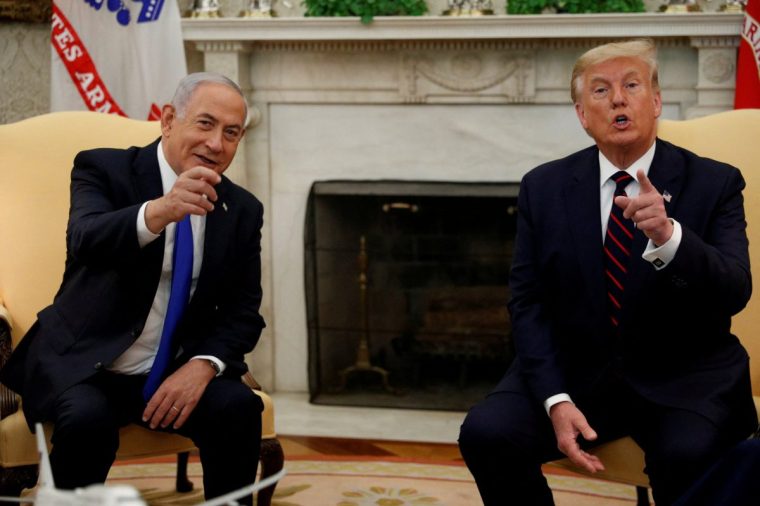 Netanyahu and Trump in 2020 during a meeting in the White House (Photo: Tom Brenner/Reuters)
Netanyahu and Trump in 2020 during a meeting in the White House (Photo: Tom Brenner/Reuters)
However, his precise stance on the matter is unclear, and Trump has previously opposed an immediate ceasefire, reportedly telling Netanyahu “do what you have to do”.
In contrast, under the administration of Joe Biden and Vice President Harris, the US is reported to have warned Israel against striking Iran’s nuclear facilities over escalation fears.
Zakiyeh Yazdanshenas, an independent academic teaching global studies at Tehran University, said: “While it may seem that a Democratic or Republican administration in the White House would make little difference for Iran, I believe Iranians are divided on this issue.”
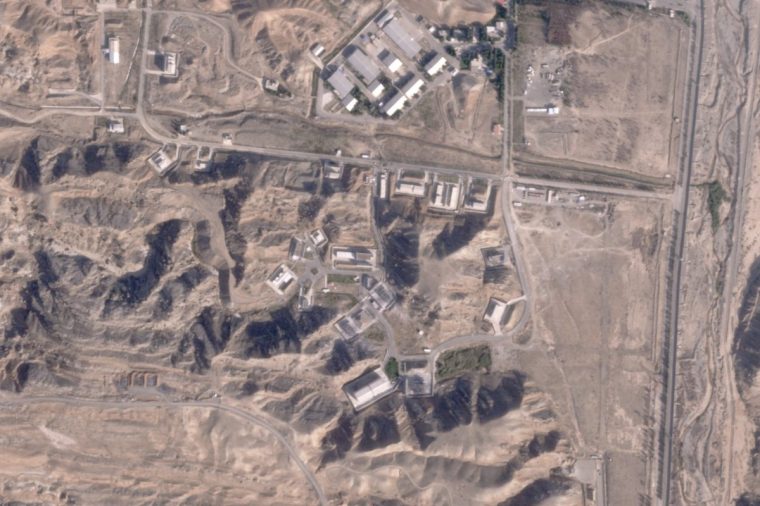 Damaged buildings at Iran’s Parchin military base outside Tehran on 27 October after an Israeli attack (Photo: Planet Labs PBC via AP)
Damaged buildings at Iran’s Parchin military base outside Tehran on 27 October after an Israeli attack (Photo: Planet Labs PBC via AP)
Ms Yazdanshenas points out that there are different views between the reformists and hard-liners within the administration. “Reformists and those aligned with the former administration [of Hassan Rouhani]” live in a stark contrast compared to the Steadfast Front, she says, as they “argue that Democrats would be more lenient in their approach to Iran”.
The Steadfast Front, which represents the country’s ultra-hard line faction of politicians and society, maintains that it does not matter who is in the Oval Office, since the Iran policy outlined behind those doors always remains hostile.
One hard line MP with this faction told i: “Why should we care who wins the elections in Washington? Does it really matter? Same policies, different names.”
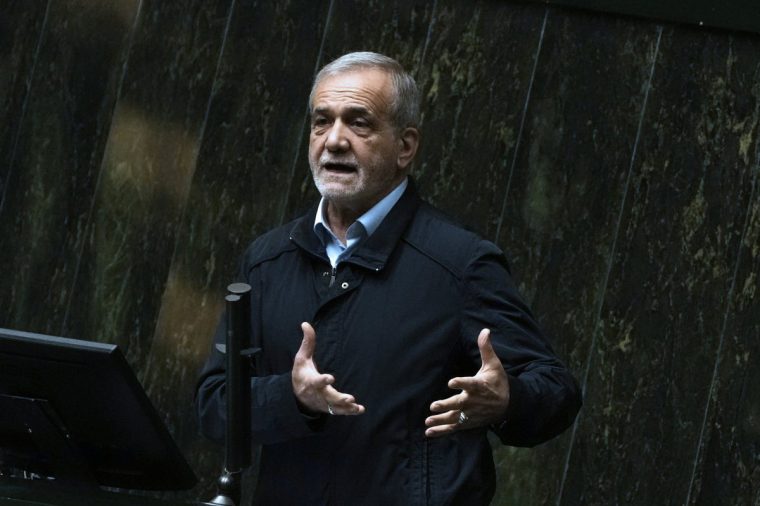 President Masoud Pezeshkian has signalled a willingness to negotiate a new nuclear deal (Photo: Vahid Salemi/AP)
President Masoud Pezeshkian has signalled a willingness to negotiate a new nuclear deal (Photo: Vahid Salemi/AP)
When this author insisted on a more elaborate explanation, the MP, who asked to remain anonymous, said: “Trump exerted a ‘maximum pressure’ campaign. Biden and [US Secretary of State Antony] Blinken kept saying the campaign has ended, yet they imposed a huge number of sanctions on us. Is the ‘maximum pressure’ campaign really over?”
The Biden administration gave Iran room to sell oil. This year Iran has sold more than 3.2 million barrels of oil per day, reaching a five-year high. However, it imposed fresh sanctions on Iran’s oil sector this summer following what Blinken described as an expansion of the country’s nuclear programme.
“Despite ongoing sanctions during Biden’s presidency, Iran has the potential to significantly increase its oil exports,” Ms Yazdanshenas says, adding that the reformists in Tehran “credit this achievement in part to the support provided by Biden’s administration, arguing that if Trump were in office, these modest advantages would vanish, leading Tehran to adopt more offensive behaviours in the region.”
With the JCPOA set to go out of date in October 2025, both Iran and the US need a new deal. Washington needs to contain Iran’s nuclear programme and prevent it from developing a nuclear bomb. For Iran, its struggling economy needs sanctions to be lifted. In August, inflation stood at 35 per cent. Signing another deal in exchange for relief could offer this much-needed lifeline. In the first year after the JCPOA was signed, in the Iranian fiscal year 2016-17, its economy grew by 12.5 per cent. This was the first time Iranians experienced two-figure economic growth.
Iran’s new President, Masoud Pezeshkian, has signalled a willingness to negotiate a new deal. Under Harris, prospects of negotiating a deal with Iran is brighter than under Trump.
Trump’s hostility towards Iran might even have increased since his presidency. His team has accused Iran of hacking his campaign, an allegation refuted by Tehran. His campaign also said he had been briefed “regarding real and specific threats from Iran to assassinate him in an effort to destabilise and sow chaos in the United States”. A Trump-authored deal may include terms less favourable to Iran.
As a result, Ms Yazdanshenas, says, “Iranian politicians believe that indirect negotiations with Democrats would be more feasible”, as “a Democratic administration would be more willing to give Iran greater consideration in regional affairs”. However, whoever wins, they “do not expect a significant breakthrough”, she added.
Based on the conversations i has had with Iranian foreign ministry insiders, the foreign minister appears to be preparing for a Trump presidency.
“It is not that we favour a Trump presidency. We just think the scenario now is way too similar to the 2016 [presidential elections, where Hillary Clinton ran against Trump],” says a senior diplomat who asked to remain anonymous.
“While Harris may win the popular votes, I assess that it would be Trump who wins the electoral [college] vote,” the official continued.
